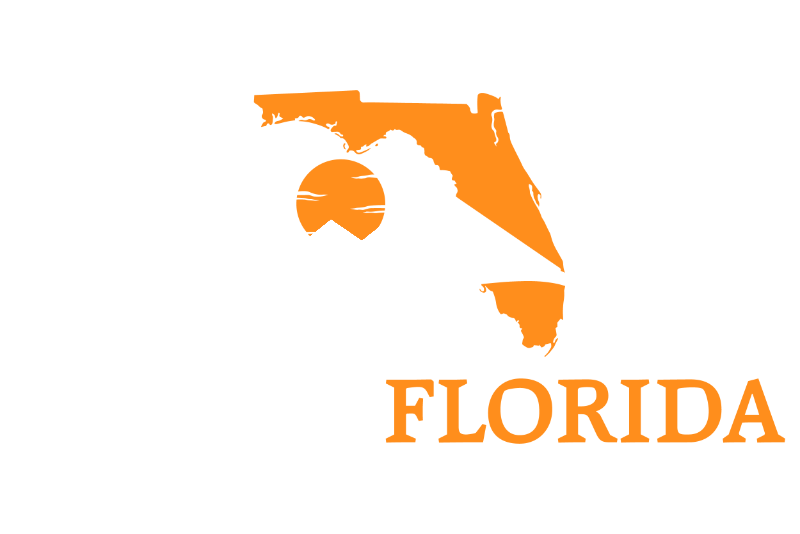The Florida real estate scene is intricate and ever-changing. In this guide, we’ll investigate the various areas of buying and selling homes in the Sunshine State. Plus, we’ll give you helpful tips for making wise decisions.
To get to know this market, it’s a must to know its attributes. From beachside mansions to basic inland dwellings, the state has something for everyone. Plus, its tax laws and business-friendly atmosphere make it a great option for investors and homebuyers.
When dealing with Florida property, it’s important to get a real estate agent who’s aware of the local market. A reliable agent will help protect your interests and get you the best value. They also know the legal and regulatory requirements in the state.
Timing is a key factor when doing business in Florida. Keep track of market trends and changes in prices. This lets you find great deals or avoid bad ones. Knowing the economic climate and future projects can give you an upper hand when negotiating.
When it comes to financing, it’s best to get pre-approved for a mortgage or have cash ready. This makes bargaining better and the closing quicker.
Also, do thorough research on the property you want. Inspections, title searches, and risk assessments (like flood zones and contamination) are all necessary. Doing your homework ensures you don’t get any nasty surprises later.

Understanding the Florida Real Estate Market
Florida’s real estate market is complex and ever-changing. Beachfront properties, city living, attractive tax incentives and recreational activities – the Sunshine State has something for everyone. Delve into this market to make decisions that fit your goals.
Steady growth and resilience make Florida desirable, whether you’re domestic or international. Know the factors that influence property values – location, market trends, zoning, and future development – before investing or buying.
From Miami’s nightlife to Orlando’s theme parks, there are endless options in the state. Research local markets for an informed decision.
Pro Tip: Get a specialized real estate agent to simplify the process. They can provide insights, negotiate deals, and handle paperwork.
Researching the Florida Real Estate Market
For successful research in the Florida Real Estate Market, focus on location, property types, and market conditions. Analyzing these aspects can help you find potential growth areas or identify competitive ones. See the table below for related data:
| Location | Property Types | Market Conditions |
|---|---|---|
| Miami, Orlando, Tampa, Jacksonville | Single-Family Homes, Condominiums, Commercial Properties | Median Sales Price, Inventory Levels, Days on Market |
Gathering details about the Florida Real Estate Market can help. For instance, analyzing tourist trends in cities like Miami and Orlando can give you insight into rental income from vacation rentals.
When researching market conditions, consider price fluctuations over time and inventory levels. Tracking these variables can tell you whether it’s a buyer’s or seller’s market, so you can strategize accordingly.
Here are tips for effective research in the Florida Real Estate Market:
- Monitor local news & industry publications for changes and developments that might affect property values or demand.
- Research listings, compare prices, and gather data on recent sales with online real estate platforms.
- Connect with local real estate pros who know the Florida market. They can offer valuable insights & connections.
- Partner with a reliable real estate agent familiar with the region. They can guide you through research and give expert advice.
These tips can provide timely information, allow comparisons & analysis, tap local knowledge, and leverage professional expertise.
Research the Florida Real Estate Market thoroughly and use these suggestions to make informed decisions and maximize your success in this dynamic market.
Choosing the Right Neighborhood in Florida
When it comes to buying real estate, selecting the right neighborhood in Florida is a must. Here are some factors to keep in mind:
- Location: Choose areas near schools, parks, stores and medical facilities.
- Safety: Look for places with low crime rates and a close-knit community.
- Property Value: Analyze property values to find areas with potential for appreciation.
- Lifestyle: Pick a neighborhood that matches your interests – be it an urban spot or a calmer suburb.
Apart from this, it’s important to research other details. Check out transportation, recreational activities and community events.
My search led me to Sarasota, a stunning coastal town. With gorgeous beaches, cultural attractions and a bustling art scene, I was instantly drawn. The combination of stunning views and friendly people made it the perfect place for beachside living.
Remember, deciding on a neighborhood isn’t just about finding a house. It’s about choosing a lifestyle that fits your needs. Take your time exploring, researching and imagining living there before making a final call. Good luck!
Navigating the Home Buying Process in Florida
Exploring the home buying journey in Florida can be intricate. But, the right knowledge and guidance can make it a fruitful experience. Here are some key points to ponder:
- Financing: Secure financing before you enter the Florida real estate market. Whether mortgage or cash payment, knowing your financial options will help ease the buying process.
- Research: Do thorough research on the regions and neighborhoods in Florida. Each area has a unique charm and facilities, so take your time to discover your ideal spot.
- Real Estate Agents: A dependable real estate agent who knows the Florida market is a great idea. They can help you find suitable homes, settle on prices, and make sure all legal requirements are met.
- Home Inspections: When you find a potential property, do a thorough home inspection. This will reveal any concealed issues or repairs needed before finalizing the purchase.
In addition, to understand the home buying process in Florida, you should also consider property taxes, insurance policies specific to the state, and homeowner association regulations.
Fun Fact: The National Association of Realtors states that Florida is a popular destination for international buyers due to its warm weather and diverse attractions.
Avoiding Common Pitfalls in the Florida Real Estate Market
Navigating the Florida real estate market can be tricky. To ensure success, here are some points to consider:
- Research the area. Look into crime rates, school districts, and amenities.
- Work with a knowledgeable agent. They have local insights to guide you.
- Conduct thorough inspections. Check for water damage, mold, and structural problems.
- Scrutinize finances. Have enough capital for down payments, closing costs, repairs, and unexpected expenses.
- Understand insurance requirements. Florida has specific regulations.
Plus, 80% of all Florida home sales in March 2021 were cash transactions. So, have funds ready. Implement these strategies and you’ll have higher chances of success.
Making Informed Investment Decisions
Making savvy investments requires researching and analyzing thoroughly. Evaluate market trends, property values, and the economic climate to choose wisely and get the highest returns.
Additionally, think about location, demand, and potential for growth. Knowing these variables is key to success in Florida real estate.
Benefit from Florida’s great climate, growing population, and flourishing tourism industry. Receive consistent rental income and have potential for appreciation.
Act fast to grab these opportunities. Keep up-to-date with market changes and seek professional advice to make sound decisions in the ever-changing Florida real estate market.
Conclusion
The Florida real estate market can be tricky. It’s diverse, with different trends. Navigate it well by learning about it. We looked into the key points in this guide.
Location is a major factor for investing in Florida real estate. Miami, the Gulf Coast – each has its own advantages.
Be aware of the laws and regulations that govern real estate transactions. Get help from legal professionals.
Understand market trends to identify opportunities. Supply/demand, rental yields, employment – keep track.
Florida has experienced booms and busts in its history. Learn from these to make better decisions.
Frequently Asked Questions
Q: What are some important factors to consider when navigating the Florida real estate market?
A: When navigating the Florida real estate market, it is important to consider factors such as location, market trends, financing options, property types, and working with a reputable real estate agent.
Q: How do I find the right real estate agent in Florida?
A: To find the right real estate agent in Florida, you can ask for recommendations from friends or family, research online, read reviews, interview multiple agents, and choose someone who has experience and expertise in the desired location.
Q: Is it a good time to buy property in Florida?
A: The answer depends on various factors such as your financial situation, long-term goals, and market conditions. It’s essential to conduct thorough market research and consult with professionals to determine the right time for you to buy property in Florida.
Q: What are some popular areas to consider when buying property in Florida?
A: Some popular areas to consider when buying property in Florida include Miami, Orlando, Tampa, Naples, Sarasota, and Fort Lauderdale. Each of these areas has its unique characteristics, amenities, and real estate opportunities.
Q: Are there any legal requirements or restrictions for purchasing property in Florida as a foreign buyer?
A: Yes, foreign buyers may encounter some legal requirements and restrictions when purchasing property in Florida. These may include obtaining an Individual Taxpayer Identification Number (ITIN), complying with FIRPTA regulations, and understanding residency requirements.
Q: How can I finance a real estate purchase in Florida?
A: There are various options to finance a real estate purchase in Florida, such as obtaining a mortgage loan, applying for an FHA loan, exploring VA loan benefits (for eligible veterans), or considering seller financing. It is advisable to consult with a mortgage lender to explore the best financing options available.
